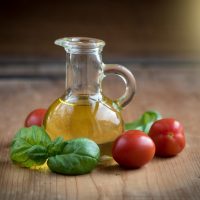Ev er wonder what charismatics mean when they spout the words “Touch not My anointed one!” We know that in the Old Testament God had Samuel anoint David as Israel’s king. But does God still choose certain men for positions of power and then instruct someone to anoint them? Bible study author, speaker and blogger Michelle Lesley goes to the scriptures to show what “anointing” is all about. She writes:
er wonder what charismatics mean when they spout the words “Touch not My anointed one!” We know that in the Old Testament God had Samuel anoint David as Israel’s king. But does God still choose certain men for positions of power and then instruct someone to anoint them? Bible study author, speaker and blogger Michelle Lesley goes to the scriptures to show what “anointing” is all about. She writes:
“Never challenge or speak out against God’s anointed,” I recently read in a book for Christian women.
Have you ever heard someone say this? Is it biblical? Who are “God’s anointed”? Why should we never challenge or speak out against them? What does it mean to be “anointed” anyway?
This is just one more of the many dangerous false teachings coming out of the Word of Faith and New Apostolic Reformation heresies. It is an adulteration of Psalm 105:15/1 Chronicles 16:22 (same text). The phrase “touch not My anointed” is lifted out of context and imbued with the meaning “never criticize, correct, or rebuke the pastor.” Unfortunately, churches that wield this false teaching like a weapon usually do so because they are pastored by a false teacher who needs to be (or is being) biblically criticized, corrected, or rebuked.
The context of Psalm 105/1 Chronicles 16 makes it obvious that this is not what this verse means, even in the Old Testament, as anyone who takes the trouble to read the whole chapter can clearly see. This verse is about God protecting the Israelites from oppression by foreign kings when they were wandering in the wilderness. “Touch not My anointed oneS” and “do my prophets no harm” is a warning to pagan nations to leave God’s people – all of them, the common people as well as the prophets – alone during the Exodus.
This has nothing whatsoever to do with New Testament churches and the idea that one should never challenge or speak out against a pastor. Pastors are only “anointed” today in the same sense that every believer is “anointed.”
In the Bible, “anoint” simply means to apply oil or another substance (Luke 7:38, John 9:6) to a body part (your own or someone else’s). In the Old Testament, one of the occasions for applying oil was in ceremonies to consecrate – set apart – someone (or something: Genesis 31:13, Exodus 29:36) for a particular purpose. For example, David was anointed with oil when God set him apart as king. All Old Testament priests were anointed with oil. Elisha the prophet was anointed with oil.